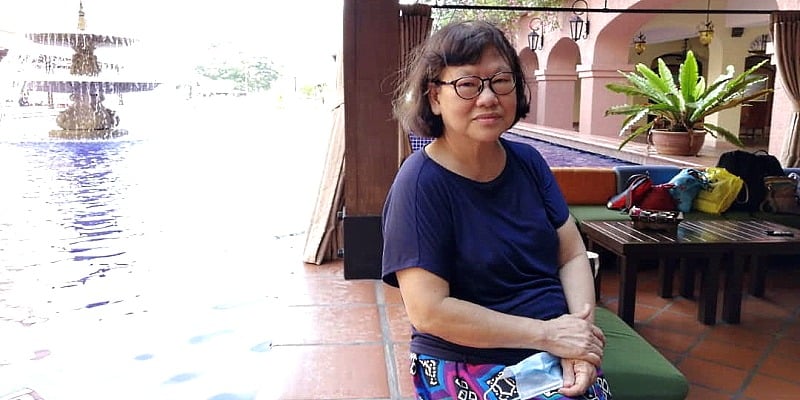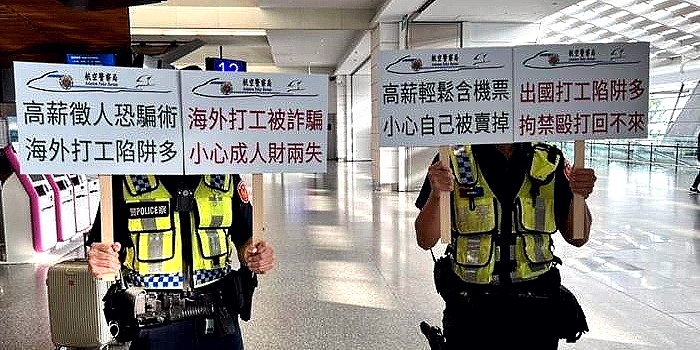
For the past one month, there have been videos going viral showing horrifying scenes of how some people trafficked into Cambodia are being beaten and tortured physically; and in others, rows of half-naked men lying in red pools of blood with captions saying their organs are being removed for sale.
When these videos first surfaced, many thought they were either fakes or exaggerations on social media.
However, when news of rescued victims sharing similar experience and even rape stories and sale of women in Cambodia – and to some extend Myanmar – began to hoard headlines in local and foreign media, skepticism turned into fury.
As more related news floods the media, it is clear that victims do not just come from Malaysia. People in other Southeast Asian nations such as Indonesia, Thailand, Laos and Vietnam have also fallen prey to lies that they can earn big bucks equivalent to 3-10 times of what they get in their home countries.
And outside Asean, people from mainland China, Hong Kong and Taiwan have also been trapped in this cheating net.
Many victims sob that employment or cut in earnings caused by the 2020-2021 Covid-19 pandemic is an important factor that have caused them to look for better paying jobs, while greed and ignorance -as well as adventure – are other reasons.
The trafficked victims only realized they were conned into modern slavery after arriving in Cambodia and being whisked to tight security areas to help syndicates carry out illegal online gaming and fraud, cheating, extortions. The more educated victims were made to sell fake online investment schemes and cryptocurrency.
Many who have escaped or rescued shared tales of being beaten up, tortured, and resold when they could not meet the expectations of work or income.
From media reports in the region, there could be thousands of innocent people being lured into this criminal network, which shift centers of operation to even Myanmar to escape surveillance.
Asean nations have been circumspect and discrete in dealing with Cambodia, employing low-key polite diplomacy to “express concern” over these scamming activities. Despite this, cross border cheating continues unabated. And Jakarta recently stopped three plane loads of 642 Indonesian heading to Phnom Penh, according to China Times.
But in Taiwan – which has no diplomatic ties with Cambodia – politicians have been outspoken about their plans to save their people trapped in Cambodia.
Police at Taipei’s Taoyuan International Airport have been patrolling with glaring signboards warning of the dangers of bogus offers of high salaries.
According to Taiwan News, authorities have even communicated with travel agencies and arrested ringleaders linked to fake schemes that boast of high-paying positions in computer engineering and similar fields.
The media also reported that Taiwan police is cooperating with the Federal Bureau of Investigation (FBI) in the United States and Thailand to stop human trafficking to Cambodia.
About 5,000 Taiwanese have reportedly gone to Cambodia – for legal as well as illegal business and work.
The plan to involve FBI, reported in mid-August, must have piled tremendous pressure on Cambodia to act urgently on this modern slavery issue.
On Aug 19, Cambodia’s Interior Minister Sar Kheng reportedly announced his ministry was launching a nationwide check on all foreigners living in Cambodia, especially those victimized by human traffickers.
Sar Kheng announced several suspects were arrested, but police were still trying to determine if the supposedly victims were telling the truth.
Separately, Cambodia’s deputy National Police chief Gen Chhay Sinarith revealed that in recent years police have arrested hundreds of people from China and Taiwan for involvement in illegal online gaming.
It is commendable that Cambodia has promised to act. But can Phnom Penh act alone, and with strong political will?
Many people are skeptical.
The main reason is that for years, the government has not been able to tackle this longstanding crime, which in the early days centered more on forced labor and sexual exploitation.
Reports by researchers and businessmen have alleged the police and powerful politicians are linked to this lucrative underground business, estimated to total billions.
As scammers come mainly from mainland China, Cambodia must seek Beijing’s help and cooperation to wipe out this network. Many Chinese scammers have used Cambodia, particularly Sihanouk City and outlying areas, as operation centers. For this reason, Beijing is expected to act now.
Within Cambodia, possessing political will is paramount to stem such activities. For illegal activities to thrive, there must be rampant corruption. Unsurprisingly, Cambodia was given 23 marks out of 100 in the corruption perception index by Transparency International in 2021. A low score means the country is corrupt.
Although the Cambodian government has established a national mechanism and legal framework to combat human trafficking, its enforcement is weak, according to media and research reports.
Phnom Penh’s ambiguous stance on this subject was highlighted at a press conference on Aug 13.
In answering criticisms and expressing dismay that Washington has downgraded Cambodia to “tier-3” in its Trafficking in Persons (TIP) report, vice-chair of the national counter-trafficking committee Chou Bun Eng said “such organized crime is difficult to track and act on as it is constantly shifting in nature” and “perpetrators keep finding loopholes.”
The senior officer told reporters to share information with officials “instead of publishing it.”
In telling the media not to publicize an on-going serious problem, it goes to show an attempt by the authorities to cover up and to shift blame to the media.
When a country shows it has no or little political will to solve a problem that is hurting the people in Asia, governments in the region must act more aggressively to exert pressure on Cambodia and China to protect their own citizens.

(Veteran writer Ho Wah Foon is a freelance journalist after retiring as editorial consultant from The Star. Prior to this, she had worked for Reuters, Chinese Forbes magazine, The Straits Times of Singapore and The Edge. The views expressed here do not represent those of Sin Chew group.)
ADVERTISEMENT
ADVERTISEMENT


































